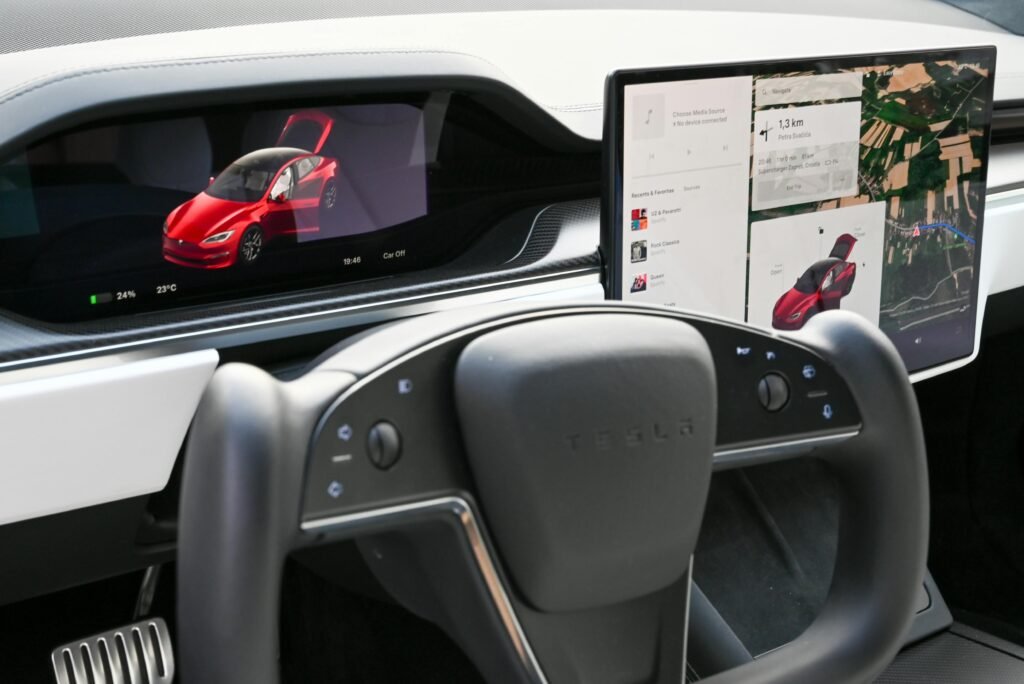
Introduction: Understanding the Importance of Choosing the Right Family Car
Selecting the perfect family car is indeed a significant decision, as it serves as the vehicle for everyday life, transporting loved ones safely and comfortably. Families often prioritize qualities such as spaciousness, safety features, reliability, and versatility when choosing a family car. These attributes ensure ample room for passengers and cargo, provide peace of mind with advanced safety technologies, guarantee dependable performance for daily use, and offer flexibility to adapt to various family needs and activities.
In this comprehensive guide, we’ll explore these essential qualities in detail, empowering families to make informed decisions and find the perfect vehicle that meets their unique requirements and preferences. Whether it’s a sedan, SUV, minivan, or crossover, the ideal family car combines practicality, comfort, and safety to enhance the overall driving experience for everyone on board.
1. Spaciousness and Interior Comfort

Interior space and seating capacity are indeed crucial factors to consider when selecting a family car. The vehicle should provide sufficient room for all occupants to sit comfortably, with ample legroom, headroom, and shoulder space. Additionally, flexible seating configurations allow families to adapt the interior layout to accommodate passengers and cargo as needed.
Features such as foldable or removable seats enhance the car’s versatility, enabling families to configure the space according to their specific requirements. Whether it’s transporting passengers, luggage, or bulky items like furniture, a family car with adjustable seating options provides the flexibility needed to tackle various daily activities and adventures with ease.
2. Safety Features and Crash Test Ratings

Absolutely, safety is paramount when choosing a family car, and having a robust suite of safety features is crucial. In addition to airbags, ABS, ESC, and rearview cameras, modern family cars often come equipped with advanced driver assistance systems (ADAS) such as forward collision warning, automatic emergency braking, lane departure warning, and blind-spot monitoring. These features help prevent accidents and mitigate the severity of collisions, providing an additional layer of protection for occupants.
Furthermore, families should look for vehicles with top safety ratings from organizations like the NHTSA and IIHS, which conduct rigorous crash tests to evaluate a car’s performance in various collision scenarios. Choosing a car with high safety ratings ensures that it meets stringent safety standards and provides maximum protection for occupants in real-world driving situations.
3. Reliability and Durability

Absolutely, reliability is a key consideration when choosing a family car. Opting for a vehicle with a strong reputation for durability and longevity can save families time and money in the long run. Reliable cars are less likely to experience unexpected breakdowns or costly repairs, allowing families to focus on their daily routines without worrying about vehicle reliability.
Consumer reports, reliability ratings, and owner feedback are valuable resources for assessing a car’s long-term performance and dependability. These sources provide insights into common issues, maintenance costs, and overall satisfaction levels among owners, helping families make informed decisions about which vehicles are the most reliable and suitable for their needs.
Furthermore, a comprehensive warranty and access to a reliable service network are essential for ensuring that any potential issues are addressed promptly and efficiently, minimizing disruptions to family life and ensuring a positive ownership experience.
4. Fuel Efficiency and Eco-Friendliness

Absolutely, fuel efficiency and eco-friendliness are increasingly important factors for families when choosing a new car. With rising fuel prices and growing concerns about environmental sustainability, selecting a vehicle with competitive fuel economy ratings and reduced emissions can help families save money on fuel costs while minimizing their ecological footprint.
Hybrid, plug-in hybrid, and electric vehicles (EVs) are excellent options for families looking to prioritize fuel efficiency and eco-friendliness. These vehicles utilize advanced technology to optimize fuel consumption and reduce greenhouse gas emissions, making them environmentally responsible choices for eco-conscious families.
Furthermore, choosing a fuel-efficient vehicle can have long-term benefits for families, including lower fuel expenses, reduced air pollution, and contributing to a cleaner, greener future for generations to come. By selecting a family car with excellent fuel efficiency and eco-friendly features, families can enjoy both financial savings and environmental benefits.
5. Advanced Technology and Connectivity

Absolutely, advanced technology features and connectivity options are crucial considerations for modern families when selecting a new car. In today’s digital age, families expect their vehicles to offer cutting-edge technology that enhances convenience, entertainment, and safety on the road.
An ideal family car should be equipped with intuitive infotainment systems that provide seamless smartphone integration, allowing occupants to access their favorite apps, music, and navigation tools directly from the vehicle’s dashboard. Advanced navigation systems with real-time traffic updates and voice-activated controls further enhance convenience and help families navigate unfamiliar routes with ease.
Moreover, driver-assistance technologies play a vital role in enhancing safety for families on the road. Features such as adaptive cruise control, lane-keeping assist, and automatic emergency braking help prevent accidents and mitigate the severity of collisions, providing added peace of mind for parents and passengers alike.
By selecting a family car with advanced technology features and connectivity options, families can enjoy a more enjoyable, convenient, and safe driving experience, whether they’re running errands around town or embarking on a cross-country road trip.
6. Practicality and Versatility

Absolutely, practicality and versatility are paramount when selecting a family car, as they directly impact the vehicle’s ability to accommodate the diverse needs and lifestyles of its occupants.
An ideal family car should offer flexible storage solutions that make it easy for families to transport groceries, sports equipment, luggage, and other bulky items. Spacious cargo areas, underfloor storage compartments, and foldable rear seats provide ample room for storing belongings while maximizing interior space for passengers.
Additionally, features such as power-operated tailgates, hands-free liftgates, and sliding rear doors enhance convenience and accessibility, especially for parents with young children or individuals with mobility challenges. These features make it easier to load and unload cargo, enter and exit the vehicle, and adjust seating configurations to accommodate varying passenger and cargo needs.
By prioritizing practicality and versatility, families can ensure that their chosen vehicle meets their day-to-day requirements and adapts to their ever-changing lifestyles, making it a valuable asset for years to come.
7. Affordability and Value for Money

Absolutely, affordability is a crucial consideration for families when choosing a new car, as it directly impacts their financial well-being and long-term satisfaction with the vehicle.
An ideal family car should offer competitive pricing that aligns with the family’s budget and financial goals. Manufacturers often provide various trim levels and optional features to accommodate different price points, allowing families to choose the configuration that best suits their needs and preferences without breaking the bank.
Reasonable financing options, such as low-interest rates, flexible loan terms, and attractive lease offers, can further enhance affordability by spreading out the cost of the vehicle over time and reducing the financial burden on families.
Additionally, factors such as resale value, depreciation rates, and long-term reliability play a crucial role in determining the overall ownership costs of a family car. A vehicle with high resale value and minimal depreciation retains its value better over time, resulting in lower ownership costs and higher overall affordability for families.
By prioritizing affordability and value, families can ensure that their chosen vehicle meets their budgetary constraints while delivering the features, performance, and reliability they need to enjoy many years of safe and enjoyable driving experiences.
Conclusion: Finding the Perfect Balance

In conclusion, selecting the right family car requires careful consideration of various factors, including spaciousness, safety, reliability, fuel efficiency, technology, practicality, and affordability. By prioritizing these essential qualities and features, families can find a vehicle that meets their unique needs and preferences, providing comfort, convenience, and peace of mind for countless miles on the road. Whether it’s a spacious SUV, a versatile minivan, or a fuel-efficient sedan, the perfect family car strikes a delicate balance between functionality, safety, and value, enriching the lives of its occupants and enhancing the family’s adventures together.
